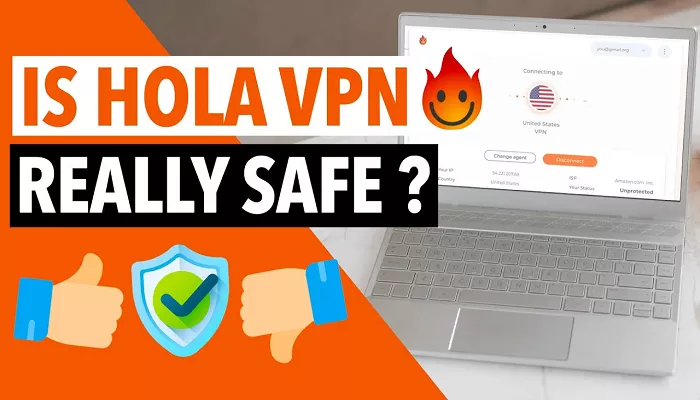In today’s digital age, safeguarding our online privacy and security has become paramount. Virtual Private Networks (VPNs) are popular tools designed to protect users’ data and maintain anonymity on the internet. Among the myriad of VPN services available, Hola Free VPN stands out due to its unique peer-to-peer (P2P) architecture and the fact that it offers a free service. However, the critical question remains: Is Hola Free VPN safe to use? This article delves into the intricacies of Hola’s operations, highlighting potential risks and considerations for users.
What is Hola’s Peer-to-Peer Architecture
Unlike traditional VPNs that route user traffic through dedicated servers, Hola employs a peer-to-peer system. In this model, users share their internet connections, allowing traffic to be routed through each other’s devices. This approach enables Hola to offer its services for free, as it eliminates the need for maintaining costly server infrastructures. However, this unique structure introduces several security and privacy concerns.
Potential Risks of Using Hola Free VPN
Exposure to Malicious Activities
By participating in Hola’s P2P network, users’ devices can serve as exit nodes for other users’ traffic. This means that any activity conducted through your IP address, including potentially malicious or illegal actions, could be traced back to you. Such exposure not only jeopardizes your personal security but also raises legal implications if nefarious activities are carried out using your connection.
Lack of Encryption
A fundamental feature of reputable VPNs is the encryption of user data to ensure privacy and security. However, Hola’s free version does not encrypt user traffic, leaving data vulnerable to interception by hackers or other malicious entities. This lack of encryption defeats the primary purpose of using a VPN, which is to secure your online activities.
Data Logging Practices
Privacy is a significant concern when using any VPN service. Hola’s privacy policy indicates that it collects various user data, including IP addresses, browsing history, and other personal information. This data collection contradicts the core principle of VPNs, which is to provide anonymity and protect user privacy.
Historical Security Incidents
Hola has faced criticism and security issues in the past. Notably, in 2015, it was discovered that Hola was selling user bandwidth through its sister service, Luminati, without explicit user consent. This practice effectively turned users’ devices into exit nodes, making them susceptible to being used for malicious activities without their knowledge.
Expert Opinions and Warnings
Cybersecurity experts and organizations have raised alarms about the safety of using Hola Free VPN. Trend Micro, a renowned cybersecurity firm, identified significant vulnerabilities in HolaVPN, including the lack of encryption and potential for malicious file access. Additionally, discussions on platforms like Reddit have highlighted concerns about Hola’s safety, advising users to seek alternative VPN services.
Alternatives to Hola Free VPN
Given the risks associated with Hola Free VPN, it is advisable to consider more secure alternatives. Reputable VPN services such as NordVPN, ExpressVPN, and CyberGhost offer robust encryption, strict no-logs policies, and do not rely on peer-to-peer architectures that could compromise user security. While these services may require a subscription fee, the investment is justified by the enhanced security and privacy they provide.
Conclusion
While the allure of a free VPN service like Hola is understandable, the associated security and privacy risks cannot be overlooked. The lack of encryption, data logging practices, and potential exposure to malicious activities make Hola Free VPN an unsafe choice for users seeking to protect their online privacy. It is crucial to prioritize security over cost when selecting a VPN service, opting for reputable providers that offer genuine protection for your digital activities.

